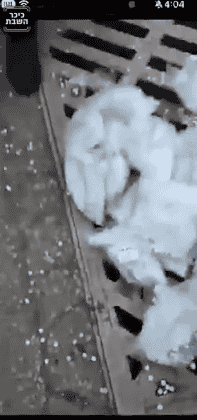Good riddance to bad rubbish
WATCH: Bashar al- Assad's Dirty Drug Empire Goes Up in Flames
The full extent of his cruelty to Syrians who opposed his regime is becoming more evident. At the same time, he allowed his own people to starve while he lived in opulence, partially paid for by making and selling drugs.


Footage from Syria shows crowds burning massive quantities of Captagon pills or dumping them into sewers, revealing an unknown part of Assad's fallen regime. Despite being forbidden by Islamic law, the Syrian regime had manufactured and exported 80% of the world's supply of this drug, reaping billions of dollars annually.
In every palace and military base captured by rebels, evidence of drug production infrastructure has been discovered. Captagon, originally developed in 1961 as an ADHD medication, is a synthetic stimulant considered a "soft drug." Over the years, it became popular for its ability to induce quick energy bursts, alertness, and euphoria - effects similar to alcohol. The drug was banned in the US in the mid-1980s but recently gained notoriety as the preferred stimulant among terrorist organizations, including Hamas militants during the October 7 attack.
According to Al Arabiya, Assad's Captagon empire controlled approximately 80% of global distribution. Reports suggest the dictator earned triple the revenue of Mexican drug cartels, with drug trade profits reaching $5 billion in 2021 alone.
Maher al-Assad, the dictator's younger brother and commander of Syria's 4th Armored Division - nicknamed the "Captagon Division" - oversaw the operation. His unit managed everything from raw material acquisition to production and distribution through Latakia port, smuggling hundreds of millions of pills to Jordan, Iraq, Saudi Arabia, and Gulf states.
Jordan, sharing a 375-kilometer border with Syria, became a major trafficking route. In 2022, Jordanian authorities seized over 65 million pills hidden in fruit shipments and machinery from Syria. Jordanian fighter jets reportedly struck several Captagon-related facilities near the Syrian border.
Rebels recently discovered massive Captagon stockpiles in the home of Munther al-Assad, a relative of Bashar al-Assad who fled after the regime's collapse. Additional large quantities were found at the Air Force Intelligence branch at the Mezzeh military airport, reinforcing long-standing accusations that Assad's regime had transformed Syria into a drug production and export hub - despite Islamic prohibitions against drugs.
Kikar HaShabbat contributed to this article.
Join our newsletter to receive updates on new articles and exclusive content.
We respect your privacy and will never share your information.
Stay Connected With Us
Follow our social channels for breaking news, exclusive content, and real-time updates.
WhatsApp Updates
Join our news group
Follow on X (Twitter)
@JFeedIsraelNews
Follow on Instagram
@jfeednews
Never miss a story - follow us on your preferred platform!